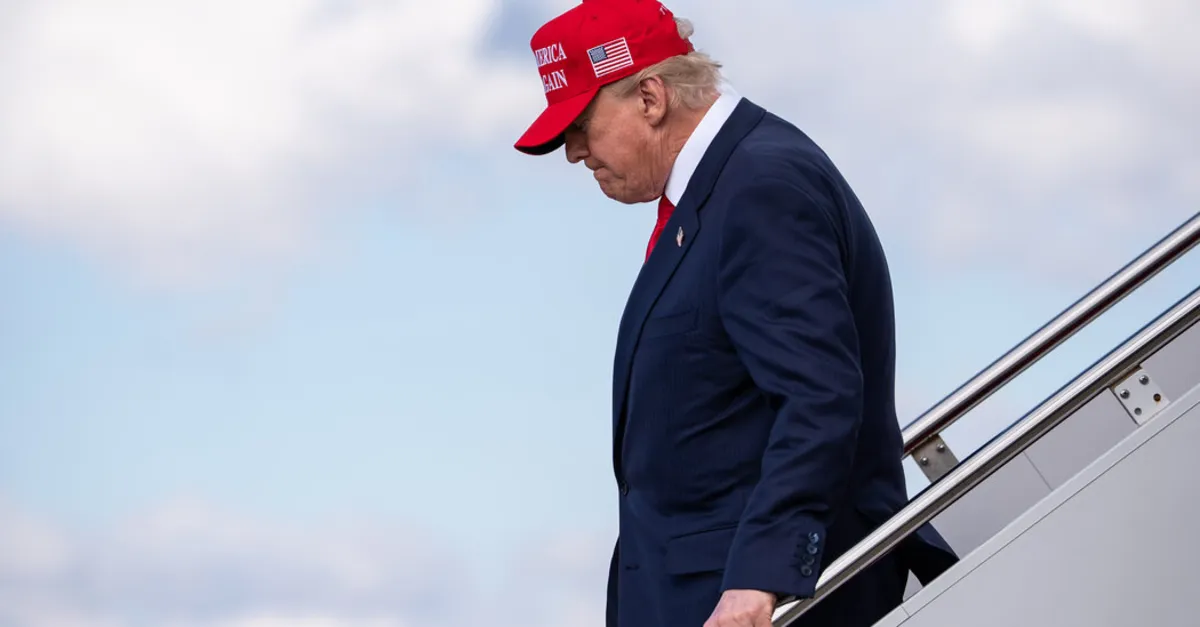
Senator John Thune, the Republican majority leader from South Dakota, has made the preservation of the legislative filibuster a cornerstone of his leadership. Despite this commitment, Thune has already taken steps that have weakened the filibuster, including implementing a rules change aimed at expediting confirmations and broadening the scope of filibuster-proof tax and spending bills. Earlier this month, Thune reiterated his opposition to any modifications that would allow Republicans to bypass Democratic opposition and pass a stopgap spending bill with a simple majority.
Thune's position has been challenged by growing pressure from certain factions on the right, notably Representative Marjorie Taylor Greene of Georgia. A spokesperson for Thune confirmed on Friday that his stance regarding the legislative filibuster remains unchanged. However, even if Thune were to consider eliminating the filibuster to appease former President Donald Trump, he may not have the necessary votes to do so.
Multiple Republican senators have expressed their reluctance to abolish the 60-vote threshold that characterizes the legislative process, a move commonly referred to as the "nuclear option." This option would enable the majority party to change Senate rules through a simple majority vote. Following his return from Asia, Trump urged Thune and his Republican colleagues to take decisive action, stating, “It is now time for the Republicans to play their ‘TRUMP CARD’ and go for what is called the Nuclear Option — Get rid of the Filibuster, and get rid of it, NOW!”
Under the current Senate rules, any substantial legislation, including a spending bill aimed at reopening the government, requires the agreement of at least 60 senators. With Republicans holding 53 seats, they would need additional support to reach the necessary threshold. While three senators aligned with the Democrats typically vote with Republicans to advance a stopgap spending bill, Senator Rand Paul of Kentucky has consistently voted against such measures.
Advocates for changing the filibuster rules argue that such modifications could be narrowly tailored to address specific bills. However, in practice, any adjustments to the filibuster rules would likely eliminate it for all legislation. Critics contend that this would be a drastic maneuver for what could be a limited victory, such as passing a stopgap spending bill. During his first term, Trump attempted to diminish the filibuster when Republicans were in control of Congress, but then-Senate Majority Leader Mitch McConnell resisted these efforts, having made the use of the filibuster against Democrats a hallmark of his career.
The ongoing government shutdown has raised concerns regarding the Supplemental Nutrition Assistance Program (SNAP), which is poised to run out of funds on November 1. This situation threatens to impose a significant economic burden on the nation’s poorest families, just weeks into a shutdown that appears to have no clear resolution in sight. Despite the impending lapse in funding, the Trump administration has stated it will not attempt to cover the shortfall, even with billions previously allocated for SNAP.
This decision has led to legal action from 25 states and the District of Columbia, who argue that the federal government has both a legal and moral obligation to continue providing these benefits. During a recent court hearing, Judge Talwani expressed skepticism regarding the government's claims of legal and technical barriers to reprogramming the emergency funds set aside for SNAP.
The potential cessation of SNAP benefits could inflict severe financial hardship on millions of Americans. States have begun scrambling to provide food stamp assistance, but many can only sustain these efforts for a limited time. SNAP benefits, averaging around $187 per recipient per month, are essential in preventing hunger and cost the federal government about $8 billion monthly. The program does maintain a reserve for emergencies, which many lawmakers have urged the Trump administration to utilize during the shutdown. However, the Agriculture Department's recent reversal on using these funds has sparked further controversy and legal challenges.
The government shutdown has also led to significant disruptions in air travel, particularly at major airports such as John F. Kennedy International Airport in New York City and Ronald Reagan National Airport outside Washington, D.C. Delays have been exacerbated by air traffic controller shortages, prompting warnings from Vice President JD Vance and Transportation Secretary Sean Duffy about the impending dangers as the holiday travel season approaches.
With controllers already overworked due to a staffing shortage of about 3,000 positions in a workforce of 14,000, the shutdown has only intensified the strain. Duffy emphasized that while the current situation remains manageable, the prospect of continued shutdowns could lead to untenable conditions for air traffic controllers, who are already facing their first missed paychecks.
As legal battles continue over key programs and the Senate grapples with filibuster rules, the implications of these political maneuvers could have profound effects on Americans' day-to-day lives, from food security to air travel safety.